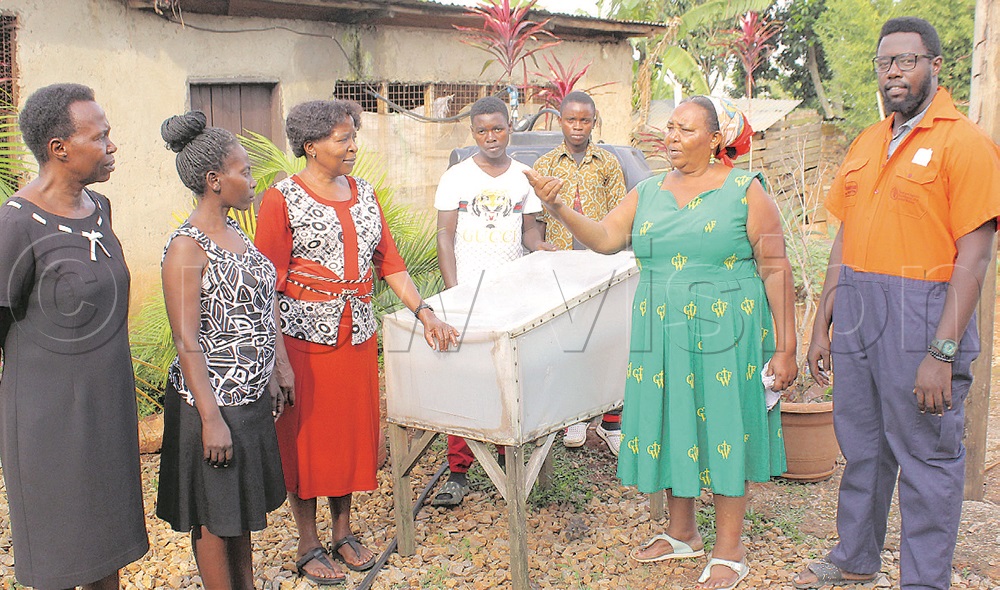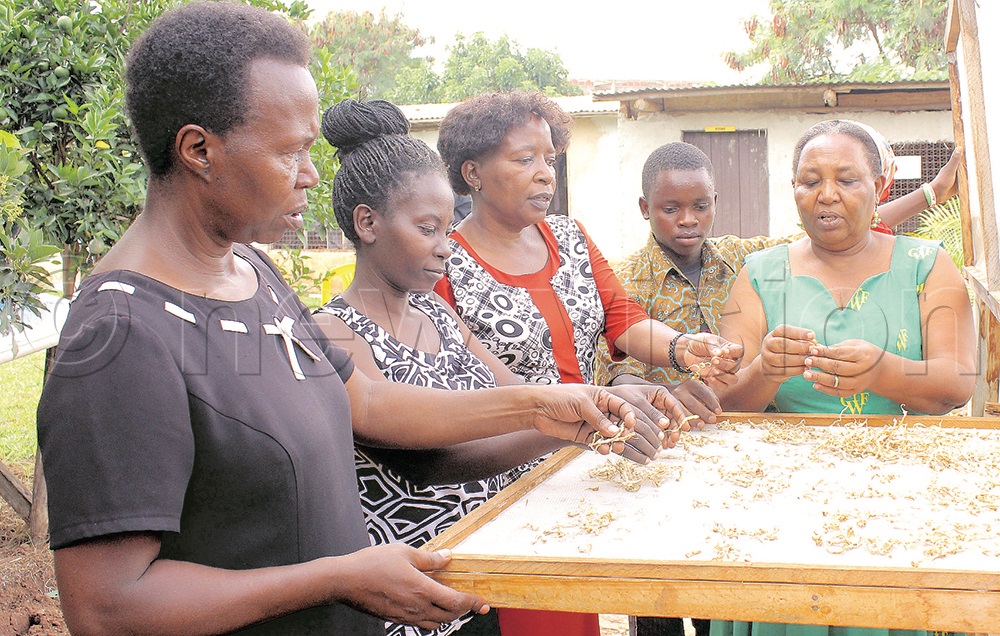Jessica Kyasabirwe Bitwire says it always saddens her when women, especially housewives, would only think about raising children and keeping the home without a source of income. when she retired from her job in 1992, she ventured into mushroom growing, through which she has empowered at least 1,000 women. David Lukiiza writes her story.
Jessica Kyosabirwe Bitwire hails from Rukungiri district, Buyanja sub-county and was born to the late Enoth Kagabo and Triphina Mpirirwe.
Growing up, Bitwire says she wanted to be a doctor, but she followed her father’s wish and pursued teaching. S
he went to Rwenyangi Primary School in Rukungiri district in 1965 before she joined Kebisooni Integrated Primary School, where she scored 221 out of 330 for her primary finals.

She says her parents advised her to repeat P7 because she had not passed highly. She repeated and excelled. Thereafter, she joined Kabale Teachers Training College for grade two teaching practice in infancy management for two years.
Upon completion of her course, she worked at Bugyera Kitojo Primary School, in Rukungiri district, where she taught for one year.
In 1979, she joined Butiti Teachers Training College in Fort Portal, where she taught at the demonstration school for one year. She then joined Kinyamasika Teachers Training College, where she also taught in its demonstration school.
Bitwire says this upgrade helped her secure her job because teachers with low-grade certificates were suffering at risk of unemployment in their field.
“I went to Buwalasi Teachers Training College in Mbale before I joined Garubunda Primary School, Rukungiri district from 1983 to 1991, where I was promoted to headmistress,” she adds.

She later upgraded to become a grade five teacher from National Teachers Training College, Kakoba in Mbarara city and later pursued a diploma in education.
Changing lives
In 1992, Bitwire recalled visiting a friend in Kabale district, who had a neighbour who grew mushrooms.
She says one of the things that caught her attention was the fact that the farmer was doing business from her compound and earning a lot of money.
“This forced me to reach out to some of her workers, who shared the basics of mushroom growing.”
She says after acquiring the skills, she began growing mushrooms in her garage for about three years.
Bitwire believes that mushroom growing is one of the activities that can rapidly eradicate poverty in Uganda as it requires little capital, space and labour.
According to her, a trained farmer is able to harvest after only six weeks if they have the required materials and spawn (seeds).
Bitwire says mushroom products have a ready market worldwide. Because she had made friends in the business, Bitwire says she realised the demand for mushrooms was too high to the extent that the few suppliers in the market were inadequate.
“I reached out to stay-at-home mothers, who wanted to acquire the skill in my community free of charge so that they could generate income,” she says.
Bitwire says she then opened her home in Garuga in Wakiso district to women to train them in commercial mushroom growing.
“I began with 34 women, seven teenage mothers and two people living with disabilities, whom I trained for two weeks. They later set up gardens in their respective homes,” she adds.
“I also helped them monitor and supervise their gardens, and as a result, they were impressed by their harvest.”
With support from local leaders
Bitwire says more women joined the training, and within six months, they were earning from mushroom growing.
Bitwire says such an initiative gave husbands confidence that their wives could stay home and also support them in income generation.
“This reduced domestic violence in homes as men realised their wives’ contributions in building a home,” she says.
She adds that because of this initiative, she had to register these women’s meetings as a charity-based organisation under the names of JB International Training and Resource Centre.
“Through this training centre, women get skilled in urban farming, especially in making use of small spaces to save on daily expenditures, but at the same time earn a living.”
Spreading out
Bitwire says she wanted to boost women’s empowerment through commercial mushroom farming in other parts of the country.
“I understand our problems and responsibilities as women because we are one,” she says, adding that she reached out to women groups in West Nile.
Bitwire says with the support from leaders, hospitals and churches, she traversed West Nile districts, where she trained women in commercial mushroom farming.
She says she trained several women in Yumbe, Maracha, Adjumani, Nebbi and Moyo.
Betty Adima, a former resident district commissioner for Yumbe district, is one of Bitwire’s 2015 trainees.
Adima says when she retired from public service, she worried about her next source of income until she heard about Bitwire’s initiative.
Adima says she began with sh150,000, which she invested in setting up 30 mushrooms in a makeshift papyrus structure.
“After six weeks, I had started harvesting and my first harvest earned me sh800,000,” she explains.
Adima says she has now saved money, which she has reinvested in 500 mushrooms in a well-structured house.
According to a Uganda Bureau of Statistics report, four million Ugandans are believed to have only one meal a day due to poverty.
It also indicates that of the 34.6 million Ugandans, about only 2% only are engaged in commercial farming.
Bitwire says many Ugandans would like to fight poverty, but they do not have enough knowledge to change the trend. However, she says mushrooms have a variety of products that can help people come out of poverty.
“Through value addition, one can produce wine, biscuits and juice, among others, from mushrooms,” she says.
Bitwire also partnered with the Food and Agriculture Organisation in 2015 to promote mushroom growing in the West Nile districts, where she has opened up offices to train more women in the venture.
Plans
Bitwire believes there are many teenage mothers that dropped out of school due to the COVID-19 lockdown effects across the country, who need to be trained and improve their income levels.
“What people want are the skills to grow the plant as well as how they could add value to their harvests,” she says.
Bitware hopes to set up at least two training facilities in each district, where women can be trained in growing mushrooms as a business. For refugee host communities, Bitware has come up with a programme, dubbed ‘Earn in six weeks’, where the communities can be trained in the business.


 VIDEO: Right Way To Prune Crops In A Greenhouse
VIDEO: Right Way To Prune Crops In A Greenhouse


